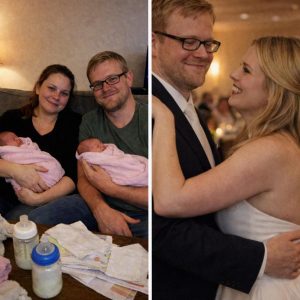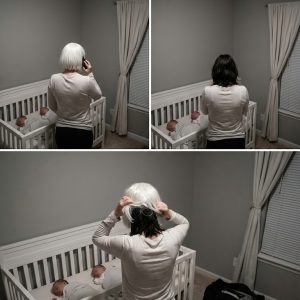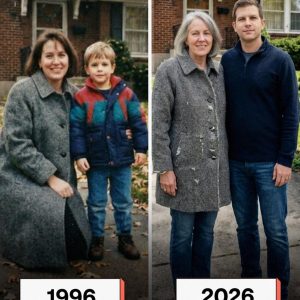When my mother-in-law died, I didn’t cry. I felt relief. She had never liked me—no kind words, no gifts, only cold distance for the ten years I’d been married to her son. Every holiday was icy, every family dinner a test I failed.
But at her memorial, my husband slipped me a small velvet box. “She wanted you to have this,” he whispered. “Open it alone.” Inside was a delicate silver necklace with a teardrop sapphire pendant—beautiful but strange. The engraving on the back was my initials: L.T.
There was also a letter, in her harsh handwriting. She admitted something I never expected: she’d been wrong about me. She hated me not for who I was, but for what I reminded her of—her own lost youth and dreams sacrificed to a marriage that never thanked her. The necklace had belonged to a man she loved before her husband, Lucas—the “L.” The “T” she added was for the daughter she never had, but saw in me.
I cried like I hadn’t in years.
At her will reading, I received a brass key with a note: “She’ll know what it’s for.” It fit a locked attic door in her house. Inside, I found journals filled with her secret life—her dreams, regrets, and paintings. One showed a woman alone in a garden, signed “Me, before I disappeared.”
Weeks later, I inherited a safety deposit box with $40,000 and another note: “If you ever chase your dream, this is my way of helping.”
I used the money to open The Teardrop, a small gallery for overlooked artists, including her. Her art finally had a voice, and through her, I found my purpose.
Sometimes the people who hurt us most are the ones hiding the deepest wounds. My mother-in-law’s last act of love gave me forgiveness, understanding, and a chance to live differently.
Sometimes, healing comes in strange packages—a sapphire teardrop, a key, and a letter that changes everything.




